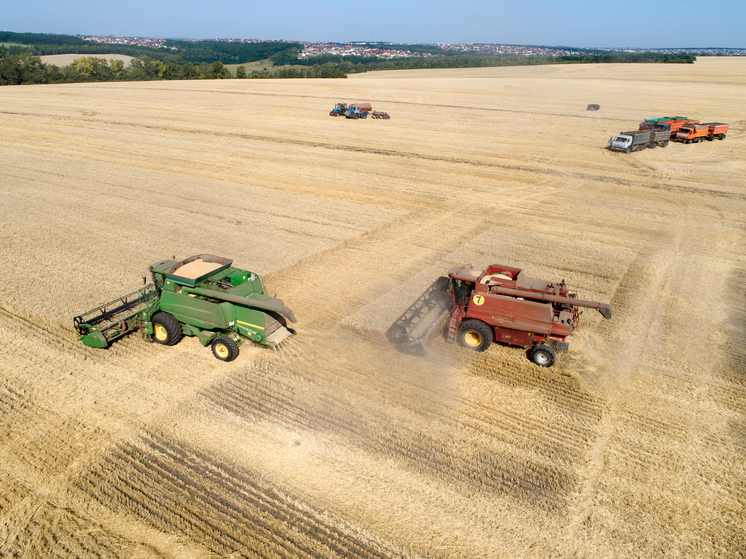The main problems of export and import have been named
UN experts have calculated that over the past 10 years, the volume of Russian exports of agricultural products has increased by 2.7 times — despite sanctions and the food embargo. Russia exports grain crops most of all, almost a third of the total supplies of the agricultural sector. The share of animal feed is 12.4%, vegetable oil and fats 8.1%.

What has happened in the last 10 years? In 2014, trade wars between Russia and Western countries began, which imposed economic sanctions against Moscow. In response, Moscow declared a boycott on purchases of products from America, the European Union, Australia, Canada and Norway. Meat, sausages, fish and seafood, vegetables and fruits were banned.
Back then, in 2014, many thought that store shelves would now be empty. Import dependence in the agricultural sector was high. And domestic farmers could not always boast about the quality of their products. Thus, according to the results of 2013, Russian food exports amounted to only 16.2 billion dollars.
And already last year, agricultural exports amounted to 43.5 billion dollars. According to Rosstat, the share of the country's GDP accounted for by food supplies to other countries was 2.14%, which is three times more than in 2013.
It should also be noted that the global food market had long been divided between the main exporting countries, and Russia was not on this list. It was necessary to win back its niches not only in quantity, but also in quality of products and pricing policy.
If you put everything in its place, it turns out that by refusing to import, we not only increased our own food production, saturating the domestic market. Today, Russia is fully self-sufficient in grain, pork, chicken, fish, sugar, vegetable oil and some other products from the consumer basket. Although before the introduction of the embargo, about 32% of food was purchased abroad.
But over 10 years, export deliveries have increased by 2.7 times. And this looks like an agricultural miracle… But miracles do not happen in this world. The import of food has indeed decreased — from 32% to 24%. However, purchases from abroad remain — primarily those products that, due to climatic conditions, we are not able to grow on our territory. For example, coffee or citrus fruits.
— An almost threefold increase in exports is a really good indicator, — believes independent agricultural expert Alexander Korbut. — Firstly, we have increased production volumes so much that today we need additional sales in other markets. Secondly, solid finances are being poured into the country's economy and the agricultural sector, which is also used to develop farms.
It is also worth noting the quality of work of exporting companies. Our sales in foreign markets would not have grown if not for the professional actions of these structures. It should be noted that the growth of Russian exports is greater than the growth of world food prices. We did not just earn more money due to the rise in prices, we increased the physical volumes of deliveries. That is, we played out all the opportunities.
Well, and one more important point: domestic farmers are receiving recognition for their products in other countries. This is important for the future development of exports, expansion of the geography of deliveries.
— We sell to those who buy, the process is not politicized. Another thing is that the “collective West” constantly imposes restrictions on our exports. How did it all begin? From declarations that food is not subject to sanctions, that it saves humanity from hunger. And now sanctions and various restrictions are being introduced with all their might. However, in any case, Russia has a clear focus on friendly countries. In particular, the global South. There is a larger sales market there, and it is possible to build a normal system of mutual settlements. For this reason, we focus on these states; with them it is possible to create a payment processing system.
— Bananas, pineapples, tea, coffee and some other types of exotics. There's no getting around this. There are also livestock products, in particular beef. However, the total import of meat to Russia is less than its export. In terms of milk, we import about 5-6 million tons of dairy products from Belarus. It's a lot. According to official statistics — imports. And if we consider Belarus as a Union State, then there is a common market.
— The main thing in exports and imports is sanctions pressure in terms of mutual settlements, which is constantly increasing. But we have learned to work in these conditions.


